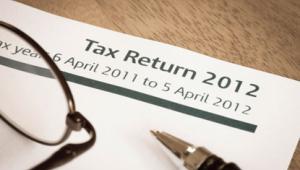By Vivienne Russell | 14 March 2013
Revenue & Customs could collect £8bn more in taxes if the government invested £300m in the department.
The Association of Revenue & Customs union, which represents the government’s senior tax officials, said this would be a return on investment of more than 26 to 1. In its Budget submission, published yesterday, the union estimates that £13bn in indirect taxes and £18.7bn in direct taxation is lost each year.
ARC president Gareth Hills said: ‘Recouping lost taxes – from companies to individuals, from VAT to corporation tax – makes sense at a time of public outrage over tax avoidance, especially by large multinationals. To do so would also help address the current £100bn deficit, providing an alternative to public sector spending cuts or tax increases.
‘By investing in key personnel in HMRC, the government will be guaranteed a significant return. Now is the time for it to act, the time for it to be bold, and the time for it to back a cast-iron winner.’
R&C is set to lose a further 13,000 staff over the Spending Review period. ARC urged to government to reconsider these reductions as well as the pay gap between the public and private sectors. Private sector tax experts can earn up to 64% more than their counterparts at R&C.
ARC’s submission came as a House of Lord committee published its conclusions on the government’s attempts to tackle corporate tax avoidance.
The sub-committee on the draft Finance Bill said the ‘narrow’ definition of the planned General Anti-Abuse Rule meant it would not address public concerns about multinational companies’ international tax planning techniques.
Committee chair Lord MacGregor said: ‘There is a misconception that GAAR will mean the likes of Starbucks and Amazon will be slapped with massive tax bills. This is wrong and the government needs to explain that to the public.
‘GAAR is narrowly defined and will only impact on tax avoidance. While this is the right approach for now, it is important that the policy is reviewed in five years to ensure it has met its objectives.’




















